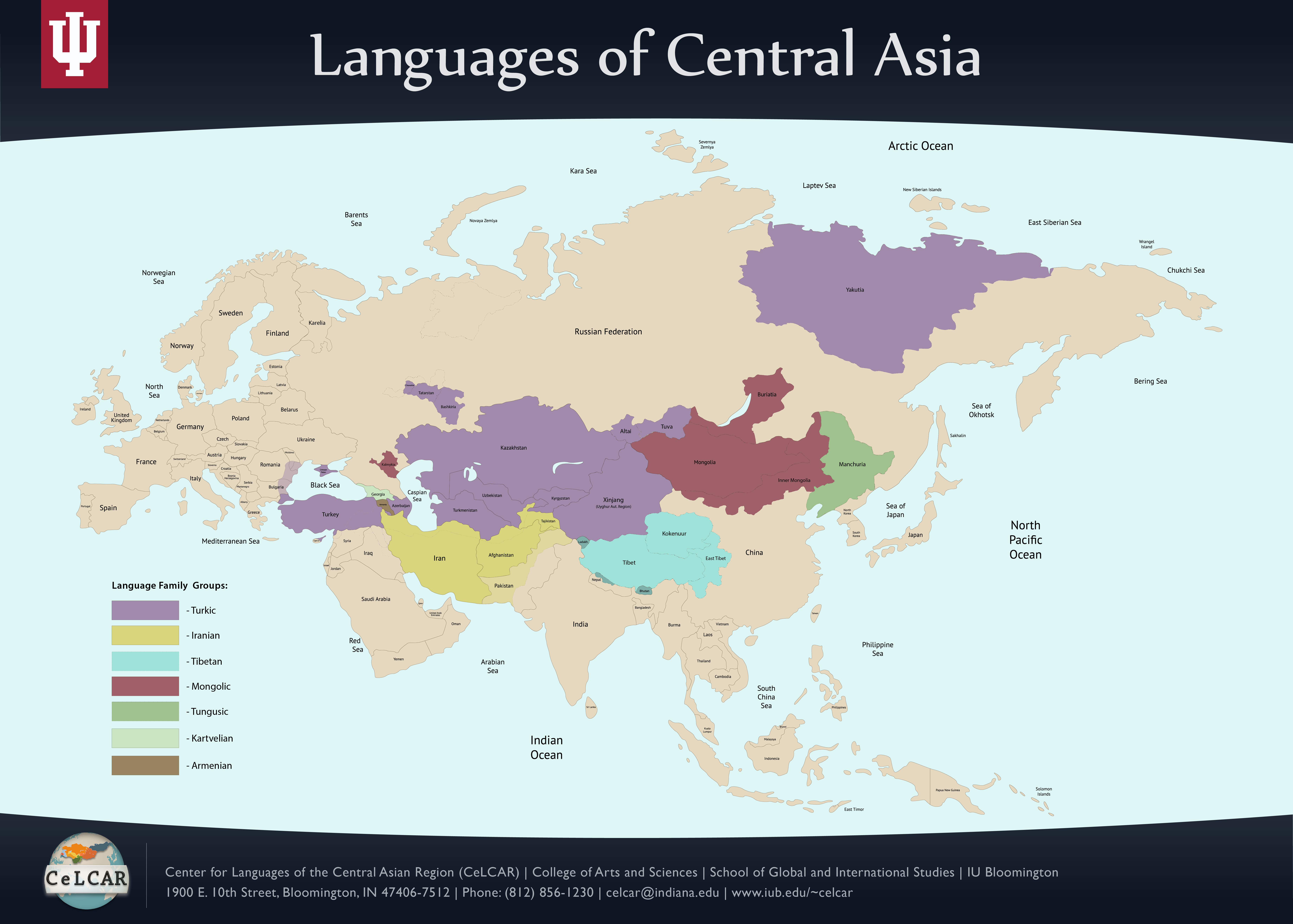 |
||||||||||||
 Click to Enlarge Map |

This spring, the Center for Languages of the Central Asian Region (CeLCAR) will be hosting the 3rd Conference on Central Asian Languages and Linguistics (ConCALL-3) at Indiana University from March 2-4, 2018.Keynote Speakers for the conference include leading names in Turkic and Iranian linguistics, as well as second language acquisition:
We also expect to have additional guest speakers in Mongolic and Tibetan linguistics.ConCALL was established in Spring 2014 as a scholarly research and professional development conference for linguists and language educators specializing in the languages of the Central and Western Asian region, including both the Altaic and Eastern Indo-European languages spoken in the region, a diverse range of languages such as Azerbaijani, Dari, Kazakh, Kurdish, Mongolian, Pashto, Persian, Tajiki, Tibetan, Turkish, Tuvan, Uyghur, and Uzbek, as well as Armenian and Georgian, along with countless endangered languages, such as Buryat and Kalmyk (Mongolic), Shugni (Iranian), Selkup (Uralic), and Chuvash, Baskirt and Yakut (Turkic)! (Click here to see map)The main goal of ConCALL is to bring together experts across the fields to focus on research into how these specific languages are represented formally, as well as acquired by second/foreign language learners and also to present research driven teaching methods.ConCALL-3 is accepting submissions on phonology, morphology, syntax, semantics, language acquisition (L1 and L2), as well as language pedagogy as concerns a Central Asian language.
|
|||||||||||
|
|
||||||||||||



